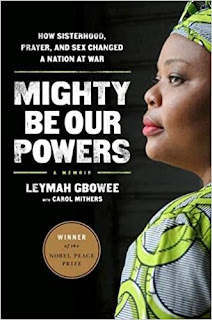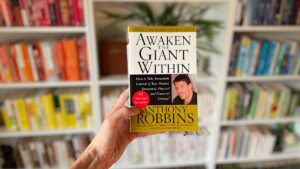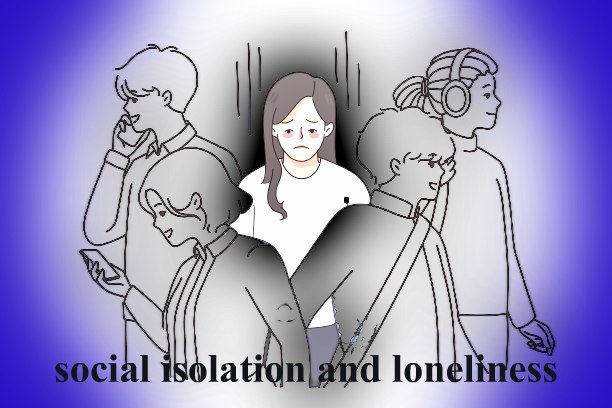Mighty Be Our Powers Summary
Tag Line: Mighty Be Our Powers shares the inspirational story of Leymah Gbowee who helped bring together an influential group of women that were tired of the unrest in their country and whose efforts eventually led to the end of a devastating and long-lasting civil war.
In today’s world, most people become famous for creative, entrepreneurial, or intellectual endeavors. But it’s not very often we hear a story of someone becoming famous for their ability to build peace in a war-torn country. Leymah Gbowee has such a story.
Gbowee shares her powerful, inspirational story in her book Mighty Be Our Powers: How Sisterhood, Prayer, and Sex Changed a Nation at War. In her book, we learn the incredible story of how she and a group of women created a force powerful enough to bring peace to Liberia in the midst of a gruesome civil war.
Gbowee felt frustration as a young woman enduring a life of violence, especially after realizing it was women and girls who go through the most suffering during conflicts. She used her frustration to organize a force of women who would stop at nothing to bring change and a better world for Liberian people. Her efforts changed history and she was a recipient of the Nobel Peace Prize.
Here’s the book summarized in just 3 lessons:
1. War turned Leymah Gbowee’s whole life upside down.
2. Although her experiences as a refugee and victim of abuse weren’t easy, Gbowee came out on top and began working toward peace.
3. Gbowee’s efforts helped create a network of women dedicated to building harmony that contributed to the end of a 13-year-long war.
Let’s get right to these lessons and see how much we can learn from this incredible woman’s story!
Lesson 1: When her life began Leymah Gbowee had a bright future, but war soon turned that upside down.
Leymah Gbowee remembers how excited and happy she was with her life when she graduated at 17. She had a good family life in Liberia and was looking forward to going to university to be a doctor. But everything turned upside down when war broke out in her country.
In 1990, a group of armed rebels, came in to overthrow Liberia’s president, Samuel Doe. While Doe was the first president to not be an elite, he still was corrupt and favored certain ethnic groups.
Opposition grew and another rebel group sprung up. The rebel groups fought each other as well as the current government. The country spun into chaos. In just a few weeks, there were daily executions in the streets, electricity stopped, and food was scarce.
Things became very uncertain for Gbowee and her family, who fled to Ghana. Here they became refugees in grim conditions. Her dream of going to university and becoming a doctor was now a distant memory.
Lesson 2: Gbowee persevered through being a refugee and abuse victim to eventually start working to establish peace.
It wasn’t safe for Gbowee and her family to return to Liberia until May of 1991 when a new interim government was put in place. But they returned to a destroyed city.
Gbowee began spending time with a young man named Daniel, and soon she became pregnant. Not long after having her son, she had a daughter. Her relationship with Daniel deteriorated. He lost his job and he frequently beat her and forced her into sex.
As struggles for power continued in 1995, Gbowee had to flee a war zone once again. This time she was pregnant and had two small children and Daniel with her. They found a place on an ancient, crammed Nigerian freighter headed to Ghana. It was jam-packed with people and there were no toilets or even room to lie down.
In Ghana, Daniel left her when she gave birth. Eventually, she returned to her parent’s house in Liberia with her three children and pregnant with a fourth. She knew she needed to find a way to support her family on her own.
She began working toward a social work degree. While in school, she volunteered at the Trauma Healing and Reconciliation Program, which helped villagers who’d suffered in the war. She helped former child soldiers deal with trauma and it became a paid job. Though it wasn’t as a doctor like she imagined, she felt happy healing the hearts of those she helped.
Lesson 3: By helping build a network of women committed to harmony, Gbowee assisted in ending a 13-year-long war.
Through her trauma healing work, she traveled to Ghana to take part in an international conference by West Africa Network for Peacebuilding. This is where she met Thelma Ekiyor, a young Nigerian woman who put Gbowee in charge of the new Women in Peacebuilding Network’s (WIPNET) first chapter in Liberia.
At the time, everybody thought of peace treaties as men’s business. However, Gbowee knew that while women may not be firing guns, they risked their lives during the war to find resources and care for their children. She was determined to give women a voice. When war broke out again, Gbowee refused to flee. After taking her children to stay with her sister in Ghana, she went to Liberia to fight for peace.
There was pressure for the Liberian president and opposition forces to negotiate for peace, but they wouldn’t have it. Gbowee decided that if the men had failed at peace it was up to women to bring it. Together with her WIPNET women, they handed out flyers and organized protests for peace.
The group brought both Christian and Muslim women to work for peace together. By April 2003, more than a thousand women marched in the street in white and chanted for peace. Nobody could ignore them anymore.
Though the president said they would begin peace talks, they repeatedly failed. Frustrated that they used the negotiations as a way to take a vacation paid for by peacekeeping networks, she decided enough was enough.
Gbowee and the WIPNET members blocked the conference room doors during a negotiation, locking them in until they made progress. Not long after, the president resigned and the rebels signed a peace agreement.
Final Words
What a crazy, sad, and inspiring story. Mighty Be Our Powers opened my eyes to a world that a privileged white boy like me has no way of really understanding. I am grateful for what little insight I can into the chaos that other countries like Liberia go through, and the added measure of compassion it helps me develop.








